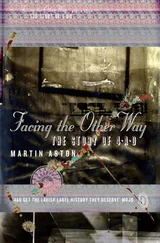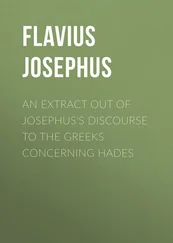Sarah Caudwell - The Shortest Way to Hades
Здесь есть возможность читать онлайн «Sarah Caudwell - The Shortest Way to Hades» весь текст электронной книги совершенно бесплатно (целиком полную версию без сокращений). В некоторых случаях можно слушать аудио, скачать через торрент в формате fb2 и присутствует краткое содержание. Жанр: Иронический детектив, на английском языке. Описание произведения, (предисловие) а так же отзывы посетителей доступны на портале библиотеки ЛибКат.
- Название:The Shortest Way to Hades
- Автор:
- Жанр:
- Год:неизвестен
- ISBN:нет данных
- Рейтинг книги:5 / 5. Голосов: 1
-
Избранное:Добавить в избранное
- Отзывы:
-
Ваша оценка:
- 100
- 1
- 2
- 3
- 4
- 5
The Shortest Way to Hades: краткое содержание, описание и аннотация
Предлагаем к чтению аннотацию, описание, краткое содержание или предисловие (зависит от того, что написал сам автор книги «The Shortest Way to Hades»). Если вы не нашли необходимую информацию о книге — напишите в комментариях, мы постараемся отыскать её.
The Shortest Way to Hades — читать онлайн бесплатно полную книгу (весь текст) целиком
Ниже представлен текст книги, разбитый по страницам. Система сохранения места последней прочитанной страницы, позволяет с удобством читать онлайн бесплатно книгу «The Shortest Way to Hades», без необходимости каждый раз заново искать на чём Вы остановились. Поставьте закладку, и сможете в любой момент перейти на страницу, на которой закончили чтение.
Интервал:
Закладка:
A narrow, steep-sided channel, deep enough for small sailing-boats to bob about in it, divides the town of Corfu from the projection of rock which by some irony of Nature makes the gentlest of islands one of the most powerful naval strongholds in the Mediterranean, impregnable save by guile for almost a millennium. The Citadel, I remembered, had not always been completely encircled by sea; but in the sixteenth century, perceiving the slender connecting isthmus as a weak point in the defenses, the Venetians had slit it as neatly and efficiently as if it had been the throat of some inconvenient diplomat.
“It occurs to me,” I said, when we had crossed the bridge over the channel and were approaching the great gateway, “that you were not surprised to find me beside the Esplanade.”
“My brother and sister told me you were here. They didn’t remember who you were, of course, but I recognized the description. What have you been saying to them, Professor Tamar? They’re off buying crucifixes at this very moment in case they meet you again.”
“That,” I said, “is most gratifying. But I fear that you, my dear boy, are less easily impressed.”
“I don’t think,” he said, with the same malicious and satirical smile, “that I believe in necromancy. But you do find things out, don’t you? Things that one wouldn’t expect.”
“It is by way,” I said, not ungratified, “of being my profession. The Scholar is dedicated to the pursuit of Truth, most of all when she is hidden and elusive.”
“Isn’t the pursuit sometimes fruitless?”
“Where nothing at all is known, even Scholarship is helpless; but even a small amount of information, perhaps of little apparent relevance, will enable the Scholar to detect the minute inconsistencies which betray the boundary between truth and falsehood. It is logically impossible, you see, for a lie to be perfectly consistent with truth: in order to tell an undetectable lie, it would be necessary to invent an alternative universe.”
Having passed through the barbican, the visitor appears to be presented with a choice of three routes by which to explore the Citadel. The choice, however, is to some extent illusory. The broad, even-surfaced roadway to the right is no more than a digression, affording a closer look at the Doric facade of St. George’s Church before winding back though the pine trees to rejoin the central pathway on its ascent to the plateau known nowadays as the Square of Heroes. Turning to the left, the visitor may follow the outer line of battlements along the base of the western summit and round the eastern, but is eventually obliged, if wishing to explore further, to undertake the climb up to the plateau. From there, there is only one way up to the eastern summit. The western, having been appropriated to the purposes of local government or television or something of that sort, is not open to the public.
Despite its less inviting gradient, we took the route which leads most directly to the plateau, a marble-flagged roadway wide enough even to allow the passage of a small motor vehicle. I rather hoped, since I could not suppose that Selena and Sebastian were more than a few minutes ahead of us, that with haste we might overtake them by the time they reached the plateau.
“I should not have thought,” said Leonidas, as we continued on our upward path, “that the activities of my brother and sister were a very likely subject of scholarly investigation — how did you come to know about them?”
“For various reasons,” I said, “I have felt for some time a certain curiosity about the affairs of your family.”
“I thought perhaps you had. It did occur to me, after you came to Godmansworth, that you had shown a more flattering interest in my conversation than it quite deserved.”
“My dear boy,” I said, “you are too modest.”
“Thank you, Professor Tamar — people don’t often say so.”
The Square of Heroes is dominated by the barracks which the British built there in the nineteenth century — an unprepossessing building and now derelict. From the open space in front of it there is admittedly a very fine view across to the island of Vido; and part of the area has been at some time laid out as a formal garden, shaded by trelliswork, with an ornamental pond and two circular stone dance-floors: I could imagine it having once been a charming setting for women in evening dress and officers in brightly colored uniforms to drink champagne and eat water-ices; but there seemed to me now to be something melancholy about the place. Selena and Sebastian were nowhere to be seen.
“They must already be at the top,” said Leonidas. “Never mind, Professor Tamar, it isn’t far.”
I resigned myself to climbing the haphazard and irregular steps, providing an often treacherous foothold, which rise in a steep diagonal from the northeastern comer of the Square: the evening was still too warm for such an exertion to be pleasurably undertaken. Moreover, it seemed when accomplished to have been undertaken in vain: arriving at the entrance to the stairway which leads upwards through solid rock to the top of the eastern summit, we were confronted with a notice announcing in Greek and English that excavations were in progress and entrance was forbidden.
“Oh,” said Leonidas, “don’t worry about that. Millie was saying at tea-time that some idiot had put a ‘No Entry’ notice up here, but it’s a mistake or a joke or something. All the excavations are down by the main gateway.”
He stooped to go through the low doorway and I followed him with misgiving. The first few steps of the stairway were lit, though dimly so, by the fight from the doorway; after that there was total darkness. Proceeding cautiously up the worn and uneven stairs, I drew some comfort from the prospect of a reunion with friends. Sebastian, I supposed, would be taking the opportunity to explain to Selena that the Citadel had been the scene of events which changed the history of the world — it may fairly be claimed that if the Turkish siege of 1537 had been successful, Western Europe would have become part of the Ottoman Empire. I hoped he would remember that it was the western summit, not the eastern, which was so heroically and momentously defended — the Venetians had grudged the expense of fortifying the latter.
We emerged at last into daylight to stand on the crest of the eastern summit. The fortifications which Venice was at last persuaded to build there have crumbled again into ruin, and broom and wild sage grow rife among the stones; but the view of the island northwards and southwards and across the sea to the jagged mountains of Epirus remains commanding and majestic. It had deservedly been recommended by Constantine to the admiration of Selena and Sebastian — who were, however, notable by their absence.
“I know,” said Leonidas. “They must be down in the catacomb. I’ll go and find them and tell them you’re here.”
Paying no heed to my suggestion that we might simply call out and see if they answered, he scrambled with great agility down an opening very similar to the one from which we had just emerged, but enclosing a staircase in an even more alarming state of dilapidation. It led, I recalled, to a tunnel-shaped chamber, hollowed out of the rock, and having no other means of entry or exit. Two embrasures — one at the eastern end, beside the staircase, the other at the center of the south-facing wall, each high enough and deep enough for a tall man to stand or lie full-length without discomfort there — opened on to an almost sheer cliff-face and looked down to the rocks some hundreds of feet below. The boy was quite wrong, of course, in referring to it as a catacomb; but the thought crossed my mind that it must be curiously similar in size and shape to the sacrificial chamber in the Temple of the Dead, where Sebastian had stumbled and grazed his wrist. I called out to inquire of Leonidas whether Sebastian and Selena were indeed there.
Читать дальшеИнтервал:
Закладка:
Похожие книги на «The Shortest Way to Hades»
Представляем Вашему вниманию похожие книги на «The Shortest Way to Hades» списком для выбора. Мы отобрали схожую по названию и смыслу литературу в надежде предоставить читателям больше вариантов отыскать новые, интересные, ещё непрочитанные произведения.
Обсуждение, отзывы о книге «The Shortest Way to Hades» и просто собственные мнения читателей. Оставьте ваши комментарии, напишите, что Вы думаете о произведении, его смысле или главных героях. Укажите что конкретно понравилось, а что нет, и почему Вы так считаете.












